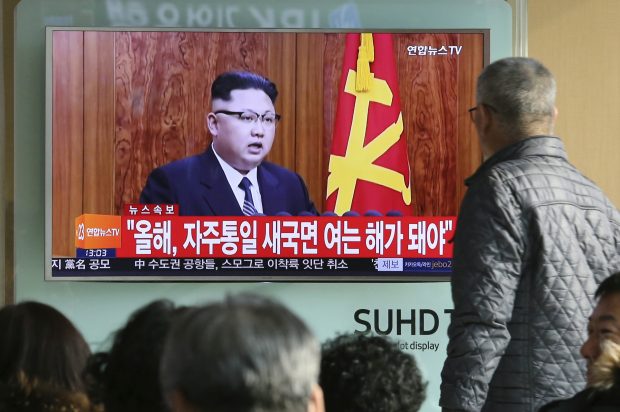
What if Kim Jong-un dies?

Kim Jong-un, the Supreme Leader of North Korea, was last seen in public with his wife on September 3 at a concert of his favorite girl group, the “Moranbong Ensemble.”
Since then he has disappeared from public view and the North Korean media have not reported on his whereabouts. Kim Jong-un was also absent from a recent meeting at the Supreme People’s Assembly — North Korea’s rubberstamp parliament.
Disappearance of Kim Jong-un
North Korean TV aired an archive footage showing the leader with difficulties walking. Based on his mysterious disappearance, there is little doubt that something must have gone wrong with Kim Jong-un, despite his young age.
It is necessary to be clear from the outset: in all probability, nothing serious is afoot. People do fall sick from time to time. Kim Jong-un is young, at 31, and it is likely that he will resurface on the television screen with his wacky hairdo and gleeful smile.
But what if things are really serious? What if Kim Jong-un has died or will die soon? It is useful to discuss such likelihood with the acknowledgement that it is a highly unlikely scenario.
To start with, North Korea is a monarchy though it has never officially admitted. There is an unquestionable belief inside the country that it has to be governed by members of the “Paekdu Bloodline,” referring to the country’s founding father Kim Il-sung’s blood relatives and their direct descendants.
To the North Korean mind, the Kim family bloodline is the prerequisite for rulership. Given that all societies before the modern era were governed by rulers who inherited their throne and that North Korea is by and large considered a “pre-modern, feudal state,” the system’s remarkably strong reliance and solidarity as an autocracy are understandable.
At this point in time, there are only a few possible candidates in the Paekdu bloodline to inherit the throne. The older generations, including the surviving half-brother of the late Kim Jong-il, are outside the sphere of influence.
Then what about younger generations?
Apart from Kim Jong-un, Kim Jongil had two other sons and a daughter. Kim Jong-nam, the oldest son, has lived overseas in Macau and China for over fifteen years. According to some plausible rumors, the relationships between him and his other halfsiblings, including Kim Jong-un, are remarkably tense. This is a predictable result of old-fashioned harem politics, since Kim Jong-nam was born to a different woman from his other siblings.
Possible successors
Kim Jong-nam has shown himself as a maverick personality. He has been open in engaging with foreign journalists and made remarkably frank observations about the Hermit Kingdom.
At the same time, he is often regarded as a favorite figure by the Chinese authorities. They have been providing him financial aid and protection for at least a decade.
Kim Jong-nam has the advantage of being the oldest member of the young generation of Kim family. His age may not work in his favor. In the event of his younger brother’s sudden death, power will initially pass onto a group of top party officials and military generals.
They will be inclined to install a weak leader as a figurehead. Little can be said about the two other younger Kims, Kim Jong-chul (Kim Jong-un’s older brother) and Kim Yo-jung (Kim Jong-un’s sister).
Kim Jong-chul is known for his love of foreign music; he was seen attending concerts overseas incognito. However, he has never been mentioned in the North Korean media, and his sudden appearance will be strange even to North Koreans (who are used to sudden and unexplainable changes at the top).
Kim Yo-jong has appeared in the North Korean media on a number of occasions. She reportedly works at the Central Committee. But she has the disadvantage of being a young woman, and which is likely to hamper her political career in a male-dominated community polity and society.
Then there is the possibility of Ri Sol-ju who is Kim Jong-un’s wife. But her ‘good-wife-and-caring-mother’ image is far from the ruthless, bellicose politics of a Stalinist regime.
There are also the top military brasses and other party cadres who may decide to go forward without a Kim or Kim-affiliate in the reign. They may decide to follow a communist tradition and appoint one of their own as the leader.
Collective leadership can be troublesome, leading to quarrels and even strife among the political magnates. Nonetheless, it is not entirely impossible for one of them to purge all
their rivals to become the unchallenged dictator.
In all probability, the death of Kim Jong-un will facilitate the demise and destruction of North Korea regime, which has held onto the end of a rope for decades. Good or bad, these are mere speculations. In all likelihood, Kim Jong-un will be back.


